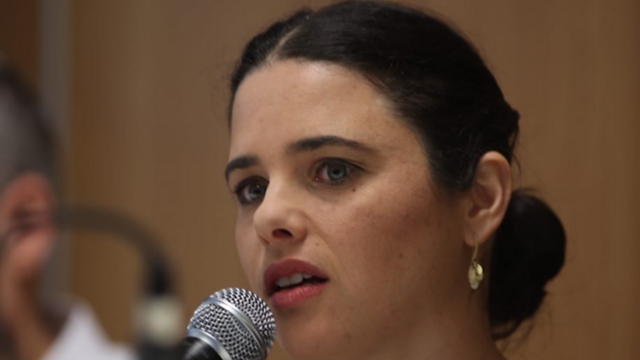
Police no longer to investigate anonymous complaints, raising ire
Police Commissioner Roni Alsheikh has announced that anonymous complaints will no longer be investigated: multiple women's organizations have protested, claiming that the new policy enables harassers.
Police Commissioner Roni Alsheikh has come under fire from all directions after declaring that the police will no longer review anonymous complaints—including ones of sexual harassment—made against police officers.
Alsheikh announced at a policewomen’s conference, "Anonymous letters have turned into a culture of settling scores in the police force, and as such, from now on the police will not deal with anonymous letters that raise suspicions of violations by policemen."
Galia Wolloch, chairwoman of the Naamat organization and of the Council of Women's Organizations in Israel, said in a letter sent to Alsheikh, "This is a particularly grave statement that again brings up the lack of trust in the police's willingness to deal with the unacceptable phenomenon and eradicate sexual harassment in the organization."
Wolloch called on the police chief to recant his statement, saying it is against the Prevention of Sexual Harassment Law.
Orit Sulitzeanu, the director of the Association of Rape Crisis Centers, dubbed the decision "a serious mistake" and said, "Hopefully, this decision derives from ignorance about sexual abuse and its consequences, and not as a deliberate measure."
Women's organizations stressed that anonymous complaints are a vital tool to expose sexual assaults, warning that disallowing anonymous complaints "may only increase the phenomenon."
"The attempt to link anonymous complaints of sexual harassment with ‘settling accounts’ provides a troubling tailwind for sexual harassers,” said Gila Oshrat, the chairwoman of WIZO Israel.
In the Knesset, MK Merav Michaeli (Zionist Union) said, "It is regretful that, while the IDF sets a clear standard of zero tolerance of sexual offenses, the police send the opposite message."
The police, meanwhile, defended the new policy, claiming it is intended to improve the way complaints are handled.
Police also said that new channels have been created for reporting sexual harassment while protecting the privacy of the complainant by, for example, contacting the police commissioner’s adviser on women's issues, Brig. Gen. Yael Eidelman.
The police commissioner and Public Security Minister Gilad Erdan also want to introduce polygraph tests for officers, but this measure requires legislative action. The police stressed that the commissioner consulted with the police’s legal advisor before making the decision.
Alsheikh received support from Justice Minister Ayelet Shaked, who said, "The police commissioner is trying to handle the desire to encourage as many complainants as possible to come forward on the one hand, while on the other hand, he is working to eradicate the deleterious culture within the police of 'settling accounts.' The solution of providing maximum confidentiality to complainants during the investigation and inquiry process is an optional solution in my view."
Public Security Minister Erdan also backed Alsheikh: "I have spoken with the commissioner in the past, and I know he is determined to eradicate sexual harassment from the police. His intention is to back the complainants so they will not be afraid to complain using their name."
The police’s Internal Affairs Unit was quick to clarify: "The department is authorized to investigate complaints leading to suspicion of the commission of a crime by a police officer. Any complaint received by the department will be examined and reviewed according to procedure."
This means that since Internal Affairs operates under the auspices of the Ministry of Justice and is not under the police chief’s command, anonymous complaints submitted to them will be addressed. State Attorney Eran Shander, who served as the first head of Internal Affairs, also found it difficult to defend the decision. "I very much hope that the police will continue to investigate complaints or conduct a pre-investigation of anonymous complaints; otherwise it cuts off a lot of intelligence to the police," he told Army Radio.












